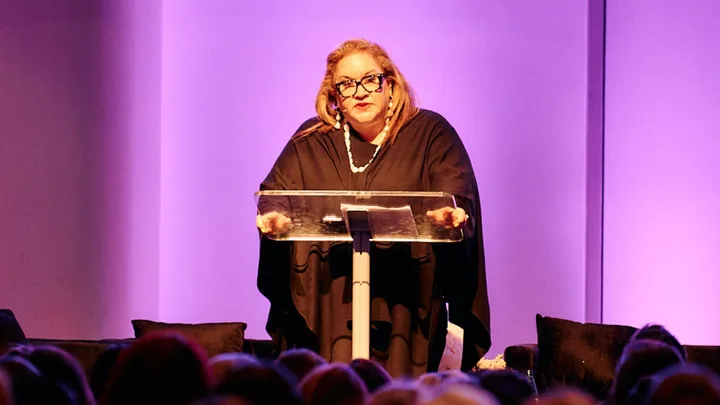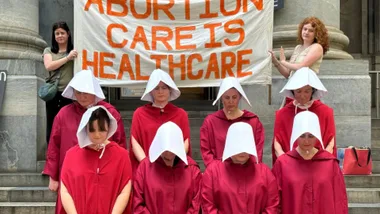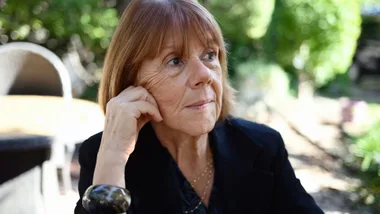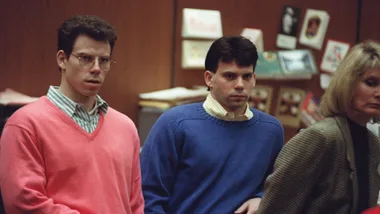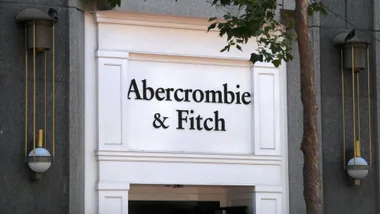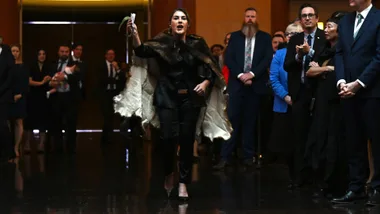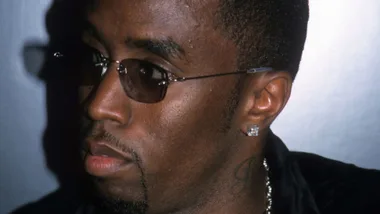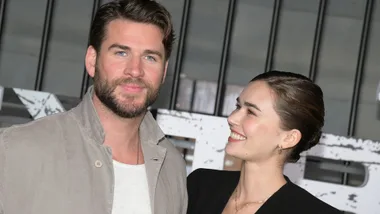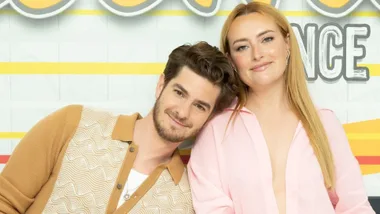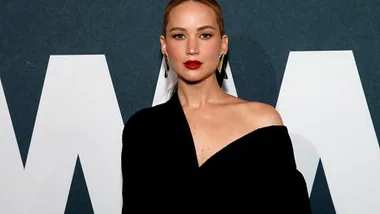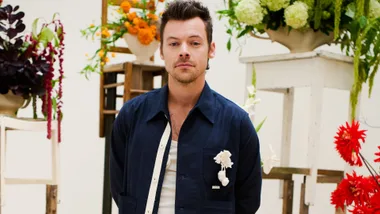As the nation gears up for the Voice to Parliament referendum, ‘Yes’ campaigner Professor Megan Davis, is ramping up efforts to educate the masses on the realities of the Voice.
With an array of myths and political spin muddying facts around the October 14 referendum, Professor Davis is sharing hard statistics and realities.
Speaking to a hushed audience at Marie Claire Power Talks sponsored by Pandora, Professor Davis shared the background to the Voice: its beginnings, its goals, and the real meaning of the Uluru Statement From The Heart.
Below, we include a full transcript of Professor Megan Davis’ speech.
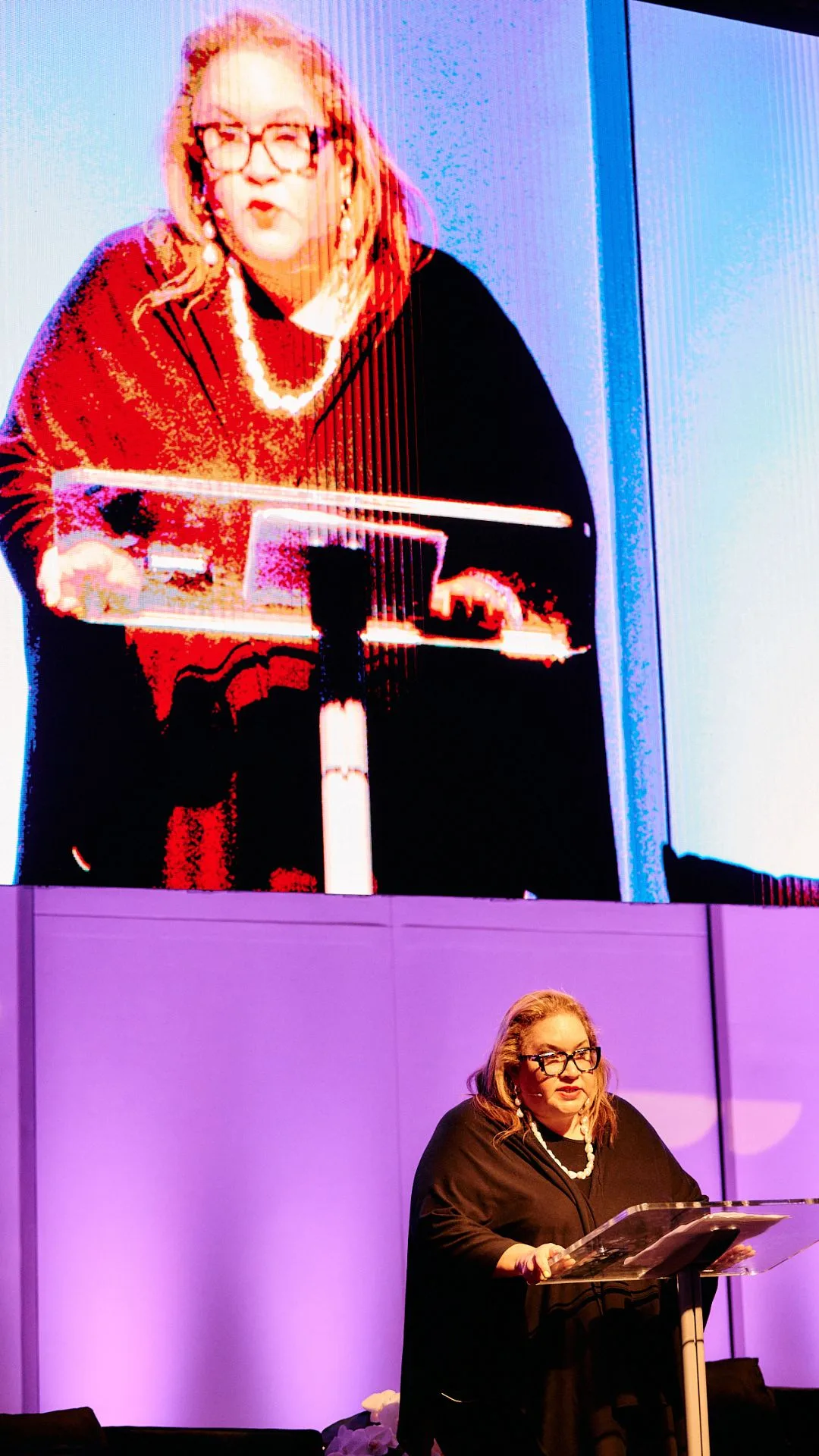
Professor Megan Davis’ Speech At Marie Claire Power Talks
I just want to begin by acknowledging the traditional owners of the land and the elders past and present.
The theme of power is fitting for discussing the Voice to parliament, which will go to referendum in ten day’s time. The Voice to parliament is grounded in the authority of the Uluru Statement From the Heart that speaks to the torment of our powerlessness.
In order to talk about what power is now, and what it may be in the future, we need to think about how it is that we got here. We need to take a brief look back into the past.
I want to read an extract from a book, the only book that’s been written on the reserve that my family was moved to. It was called the Barambah reserve, or known as Cherbourg today. The book was called, A Dumping Ground: A History of the Cherbourg Settlement.
The quote goes like this:
In the early months of 1901, as White Australians were undergoing their rite of passage into nationhood, another group of Australians was participating in a rite of passage. But of a quite different kind. In the Burnett histories of south-east Queensland, remnants of the Wakka Wakka tribe were being rounded-up and dumped on reserves of the banks of the Barambah creek.
From camps on the fringes of town and station properties, they had been forced onto an Aboriginal settlement established ostensibly for their care and protection. For the Wakka Wakka people, their rite of passage was not into nationhood or independence, but into institutionalisation, compulsory racial segregation and domination. The two rituals were diametrically opposed.
The brutality of the Australian state towards Aboriginal people was a part of those values that continue to imbue the constitutional order to this day.
For a constitutional order, power is about structure.
Those who govern the structures hold the power.
Institutions set up the structures of power and they set up which parts of our system have certain powers, and they split them up between state power and federal power and the judiciary.
When the constitution was granted in 1901, committees were set up to talk about what it should say, and what system of government Australia should have.
Aboriginal people were deliberately excluded from that process. So were women. When it came to voting on the constitution, many Australians were also excluded. They weren’t allowed to vote.
The men at the constitutional conventions debated whether women should be able to vote, and they decided ‘no’. They decided you could only vote in federal elections, if you could vote in the state election. So, that meant only women in South Australia and Western Australia could vote on the constitution. You also couldn’t vote in federal elections if you were a migrant from Asia, or Africa or the Pacific Islands. Aboriginal people barely got a mention in the conventions. So our constitutional history, the constitution we have today, is one built of exclusion. Our history excluded Aboriginal people, women, non-European migrants from our structures of power.
But we as Aboriginal and Torres Strait islander people were expressly excluded.
So, what the Voice is doing partly is correcting the record; correcting the exclusion.
In 1901, Aboriginal people were only mentioned in two places in the Constitution in ways that excluded us: We weren’t to be counted in the census and we weren’t to be included in federal laws. That was removed in 1967 because Australia voted ‘Yes’ to change our referendum but there was nothing put in its place.
And the manifestation of that constitutional exclusion continues to this day.
Our constitution can only be changed by the people. A double majority. That is what the founders did to empower the people to make the change. Not politicians. We are not one of those countries where the drafters decide to allow two thirds of the parliament to change the constitution. It’s the Australian people that can change the constitution. That is why we need a referendum.
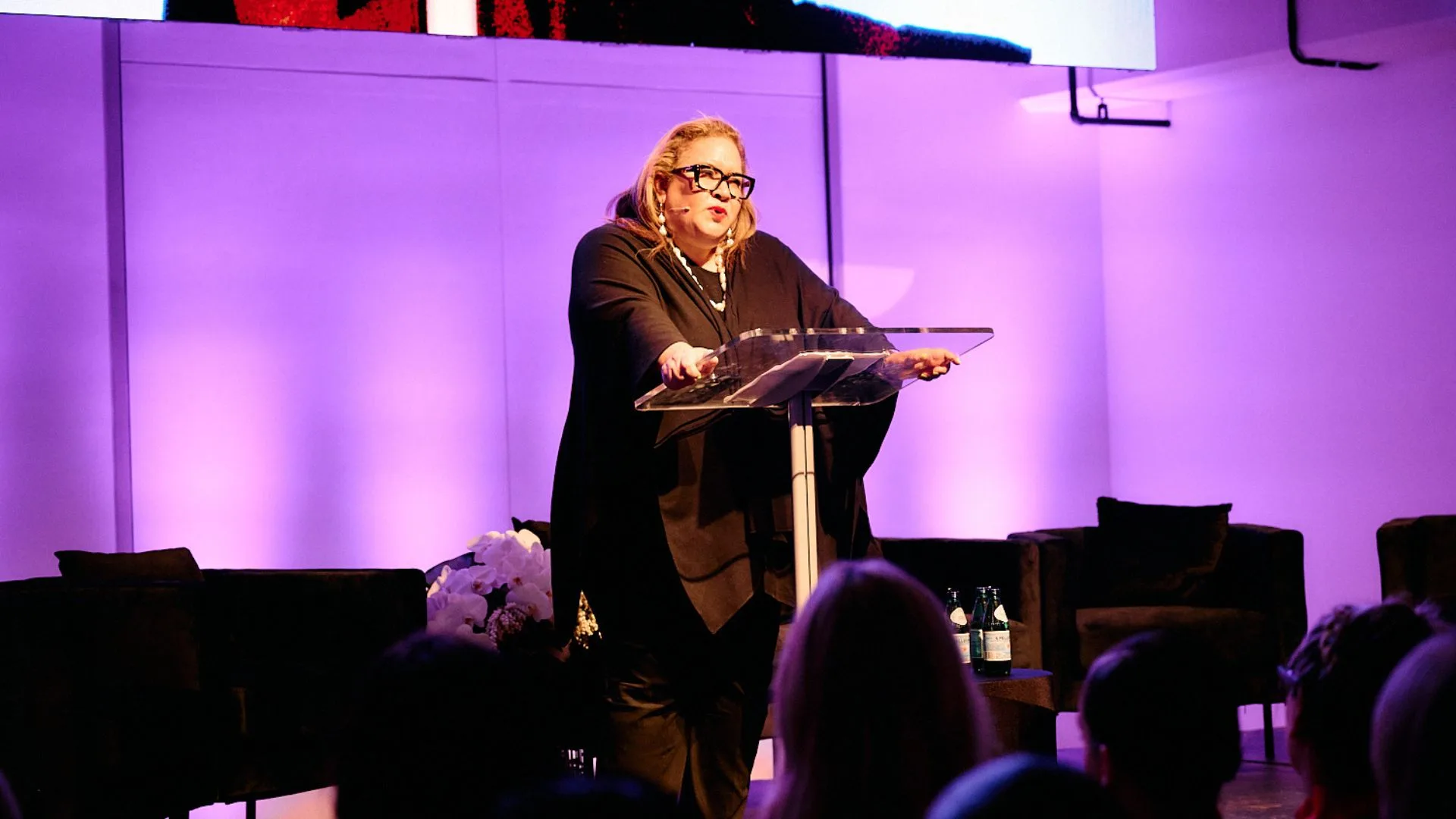
What is the constitutional amendment? What will you be asked on October 14?
The amendment proposed in the Voice is to put in a new section in the constitution. It says:
‘In recognition of Aboriginal and Torres Strait Islander peoples as the first peoples in Australia, there shall be a voice. The Voice will make representations to the parliament and the executive about the matters that directly affect us.’
What might those matters be?
It might be about the way we can overcome disadvantage in our communities.
One of the biggest issues in many communities, including in regional areas, is fresh drinking water.
Ageing infrastructure and copper seeping into the drinking water. Yarrabah, a township about 40 minutes outside of Cairns, has copper seeping into the drinking water, and the Queensland government, on the 7:30 Report last week, ran a story that said ‘run your taps for 20 minutes before you drink the water and it should be clear of the copper particles.’
You go to the Closing The Gap report four weeks ago, and you look under essential services, and you look under water, and it says there are no statistics available.
Another issue in our community right now is combating pre-term birth. First nations babies are 1.6 times more likely to be born early. This has huge impacts on their survival and future health. Pre-term births is the number one cause of death and harm to babies. Many children then carry the consequence of being born early through their entire life, with increased likelihood of a range of diseases and disabilities.
Another issue that is rarely raised in the media or by politicians, is that when our people turn 50, they start preparing for death.
Superannuation and the access of early superannuation is a significant issue in our community. We have been advocating for 20 years for superannuation funds, and for the Commonwealth parliament and governments to allow first nations to release their superannuation early on the basis of life expectancy. But they will not listen.
What happens is people die in the test stage, and men and women that want to access their superannuation to buy their children property or hand their property or wealth to the next generation, aren’t able to, and then families continue to fight and cannot access that money, as it sits with the trustee.
These are just three issues that we rarely hear about, but are the things that actually dominate a lot of the discussions.
The Voice will be able to make representations to government about how to combat this. It will also be able to make representations about the other aspects of our lives as First Nations people, our culture, like protecting cultural heritage sites and structures. Or how to protect our languages or songs. These are matters that affect us directly and we want to be able to have a say in them.
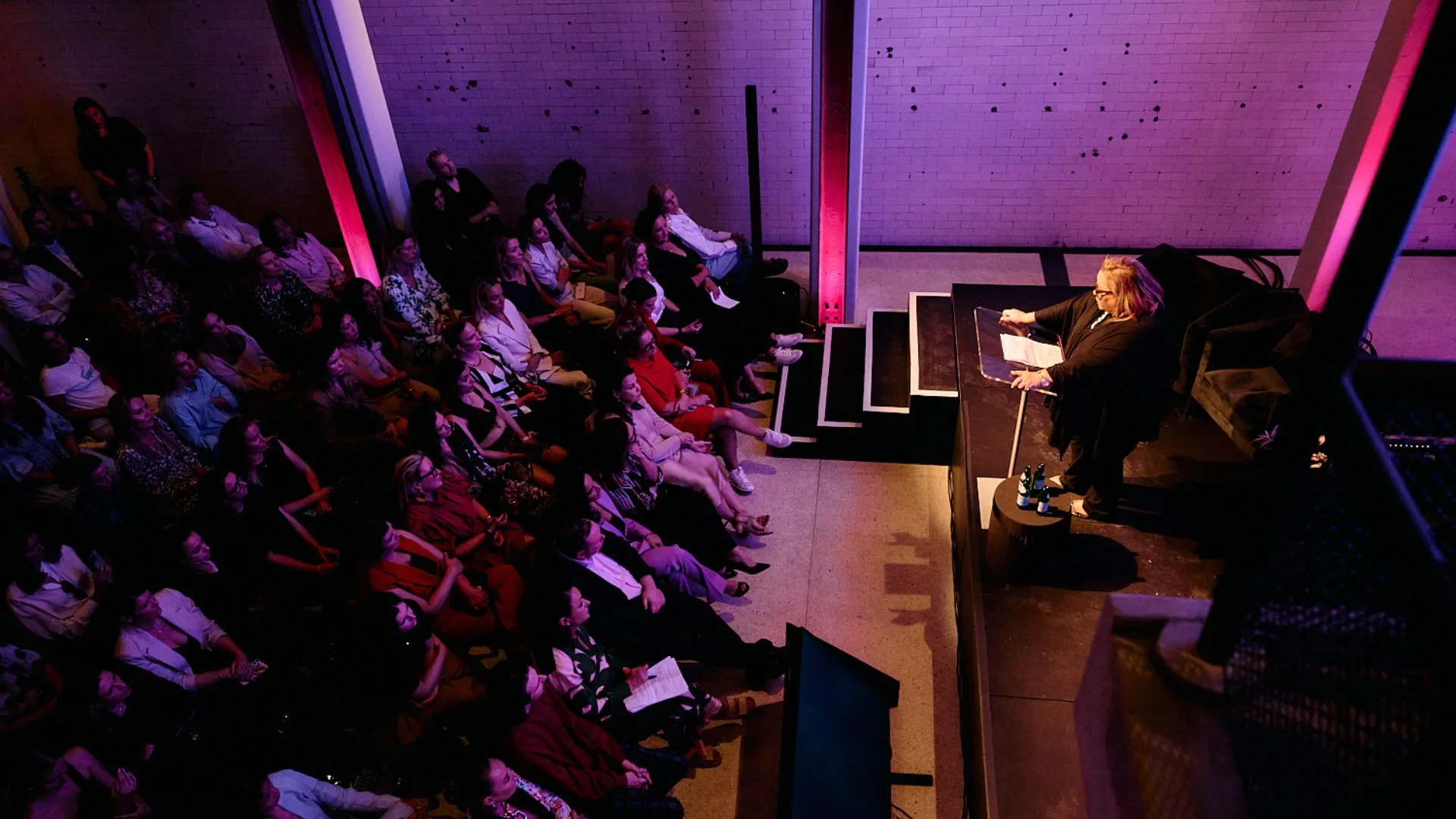
The Voice to Parliament is about allowing us to have a seat at the table on laws and policies that are made about our lives.
And the detail that has been released on what the body might look like after the referendum? Nobody talks about it but it speaks to gender equality. The detail says there needs to be equal men and women that sit on the Voice. That will be legislated.
This change will be hugely empowering for our community, both in terms of the acceptance and love that we will feel from all Australians, but also because it’s a practical change that will empower us to have a seat at the table to make things happen. And it will allow women’s voices to flourish. Let me repeat that: It will allow Aboriginal and Torres Strait Islander women’s voices to flourish.
The Voice proposal is simple. It is modest but it is profound.
It is supported by more than 80% of First Nations peoples. It is supported overwhelmingly by Australia’s legal profession. The best legal minds in this country have declared it to be safe and an enhancement of our democracy.
It is supported by well over 100 of Australia’s leading health organisations, who say it will have the effect of improving health outcomes for our people.
It corrects the exclusion of our people from our country’s founding document.
A ‘Yes’ vote in the referendum in ten day’s time means we wake up to a better future, a more equal, more inclusive, and more expansive idea of what our country can be.
I want to finish by reading the Uluru Statement From The Heart. This is a document which is the consensus position of First Nations delegates to participate in 13 meetings across the country in 2016 and 2017, at a national constitutional convention at Uluru—the first time our people were included in constitution law. The first time that the Commonwealth had set up a process allowing our people to give input into the constitution, because of course we were excluded in the 1890s.
This document led to a consensus of our people, through yarning, discussing and considering each other’s perspectives and coming to an agreement. The really important point about the Uluru statement, is that the process absorbed and elevated agreements, disagreements, tension, and then we got to a consensus.
I should say that the document you hear about on Sky News and Facebook, they are the butcher’s paper of a conference. It’s not a Trojan horse. When we turned up to communities to talk to our people, [we found] they do not trust the government; and we promised to take down, in writing on butcher’s paper, every single word that they said. So that butcher’s paper is perhaps the most extreme views and ideas, the most radical views and ideas, the most benign ones. But like all conferences, the butcher’s paper is thrown away as you slowly move towards the final document. The final document is the one page document of the Uluru Statement From The Heart.
In this country, and many, many Commonwealth countries, Indigenous people use one-page petitions as a form of political participation. That’s what the Uluru Statement From The Heart is.
Since the early 1800s First Nations people have been issuing petitions like that. One page statements to the Crown. The difference with the Uluru Statement though, is that Old People at The Rock departed from that position. We didn’t put a statement on a bark painting and hand it to the government, or the prime minister or anyone from the parliament. Rather, our Old People said, ‘We’re going to read this out at the rock to the Australian people. We’re not going to issue it to parliament. We’re not going to give it to a Prime Minister so it can end up on the floor of Parliament House.’
‘The Australian people helped us in 1967’, they said. ‘We’re going to ask them to help us again.’
This is a profound gesture that has been lost in all the information and disinformation of this referendum campaign. Our Old People have suffered so much. And, despite everything that has happened to them—and we spoke about much in those dialogues; we spoke about dispossession, we spoke about genocide, we spoke about compulsive racial segregation, because that’s what the ‘Protection’ era was: Australia’s period racial segregation; We spoke about the removal of children, babies. We spoke about stolen wages. We spoke about youth suicide—and despite everything that has happened to our people, my people, they chose love. That is what the Uluru Statement From The Heart is. It’s a hand of friendship to the Australian people. It’s an olive branch. It’s a roadmap to peace. It’s about love.
I remember at the time listening to it thinking, as a relatively younger person, ‘why are our Old People talking like this?’ Many of the younger generations were perplexed or angry. But a really important thing about our culture in this country is that you cannot maintain disputes and conflict for a long time. You have to have some finality to disputes. In the old days, you needed to ensure that the nation, the clan group, were restored to peace. That people didn’t hold grudges. That we resolved our disputes and we could move on. Because this continent is a very difficult continent to live on. And the Old People at the Rock spoke about climate change. They have been noticing for decades and decades this country changing. And we cannot face what we’re about to face as Aussies, as Australian people, without some peace. The country needs peace. And that is at the heart of the Uluru Statement From The Heart.
So it’s a document of profound love, a document of forgiveness, a document of hope. It represents a profound faith in the goodness and the decency of the Australian people. It is an invitation to you, the Australian people.
We, gathered at the 2017 National Constitutional Convention, coming from all points of the southern sky, make this statement from the heart:
Our Aboriginal and Torres Strait Islander tribes were the first sovereign Nations of the Australian continent and its adjacent islands, and possessed it under our own laws and customs. This our ancestors did, according to the reckoning of our culture, from the Creation, according to the common law from ‘time immemorial’, and according to science more than 60,000 years ago.
This sovereignty is a spiritual notion: the ancestral tie between the land, or ‘mother nature’, and the Aboriginal and Torres Strait Islander peoples who were born therefrom, remain attached thereto, and must one day return thither to be united with our ancestors. This link is the basis of the ownership of the soil, or better, of sovereignty. It has never been ceded or extinguished, and co-exists with the sovereignty of the Crown.
How could it be otherwise? That peoples possessed a land for sixty millennia and this sacred link disappears from world history in merely the last two hundred years?
With substantive constitutional change and structural reform, we believe this ancient sovereignty can shine through as a fuller expression of Australia’s nationhood.
Proportionally, we are the most incarcerated people on the planet. We are not an innately criminal people. Our children are aliened from their families at unprecedented rates. This cannot be because we have no love for them. And our youth languish in detention in obscene numbers. They should be our hope for the future.
These dimensions of our crisis tell plainly the structural nature of our problem. This is the torment of our powerlessness.
We seek constitutional reforms to empower our people and take a rightful place in our own country. When we have power over our destiny our children will flourish. They will walk in two worlds and their culture will be a gift to their country.
We call for the establishment of a First Nations Voice enshrined in the Constitution.
Makarrata is the culmination of our agenda: the coming together after a struggle. It captures our aspirations for a fair and truthful relationship with the people of Australia and a better future for our children based on justice and self-determination.
We seek a Makarrata Commission to supervise a process of agreement-making between governments and First Nations and truth-telling about our history.
In 1967, we were counted. In 2017, we seek to be heard. We leave base camp and start our trek across this vast country. We invite you to walk with us in a movement of the Australian people for a better future.
Thank you.
